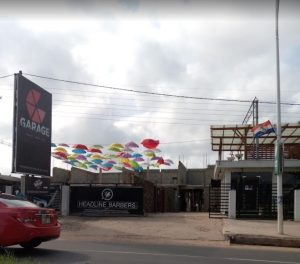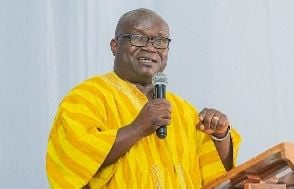The Ghana Coalition Against Galamsey has intensified its call for decisive action against the pervasive issue of illegal mining, commonly known as “galamsey,” by urging President John Dramani Mahama to declare a state of emergency in the most affected regions. The coalition argues that this targeted emergency declaration, permissible under Ghana’s Constitution, is crucial to safeguard the country’s environment from the extensive and ongoing damage caused by galamsey operations. They emphasize that the plea isn’t for a nationwide state of emergency, but a focused intervention in specific areas grappling with the heaviest impact of these destructive practices. This appeal underscores the urgency of the situation and the perceived inadequacy of current measures to curb the illegal mining menace.
Beyond the call for a state of emergency, the coalition has also petitioned the President to launch investigations into alleged involvement of certain National Democratic Congress (NDC) executives in galamsey activities, with a view to potential prosecution. Specifically, they have named Oscar Ofori Larbi, the Member of Parliament for Aowin, and NDC constituency chairmen in Axim and Dunkwa as individuals suspected of complicity in illegal mining ventures. This petition adds a political dimension to the fight against galamsey, suggesting that the issue extends beyond illicit small-scale operations and potentially involves influential political figures who may be facilitating or benefiting from the destructive practice.
This call for a state of emergency has ignited a debate regarding its efficacy and potential implications. Paa Kwasi Schandorf, the Media Relations Officer at the Ministry of Lands and Natural Resources, has expressed skepticism about the effectiveness of such a measure without the backing of robust and practical supporting policies. He cautions that while declaring a state of emergency may signal a strong commitment to tackling the issue, it could become a symbolic gesture devoid of real impact if not accompanied by well-defined implementation frameworks. This perspective highlights the need for comprehensive strategic planning and execution, going beyond mere pronouncements of intent.
Schandorf’s argument emphasizes the importance of translating declared intentions into concrete actions. He questions the value of a state of emergency if the underlying policies designed to address the root causes of galamsey and regulate mining operations are not effectively enforced on the ground. He draws an analogy to someone publicly pledging to change a behavior without taking any tangible steps towards fulfilling that promise. This highlights the potential for a disconnect between declarations of intent and the actual implementation of measures needed to address the complex issue of illegal mining.
The government’s current approach, characterized by a five-pronged strategy formulated by the Minister of Lands and Natural Resources, appears to be the preferred alternative to a state of emergency, at least from the perspective of the Ministry. While details of this strategy remain unspecified in the given context, it likely involves a combination of regulatory reforms, enforcement actions, community engagement, and perhaps alternative livelihood programs. Schandorf’s reference to this approach suggests that the Ministry believes a more nuanced and comprehensive strategy is more likely to yield sustainable results than a blanket state of emergency.
The debate over a state of emergency versus alternative strategies underscores the complexity of tackling galamsey. The Coalition Against Galamsey’s call for immediate and drastic action reflects the deep concern about the environmental devastation caused by illegal mining. However, the Ministry’s caution against symbolic measures without supporting policies highlights the need for a well-structured and sustainable approach. The effectiveness of either approach remains to be seen, and the ongoing debate underscores the need for a comprehensive and multifaceted solution that addresses both the immediate crisis and the underlying factors driving illegal mining in Ghana.














